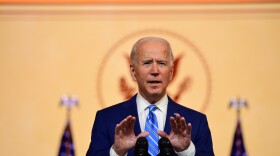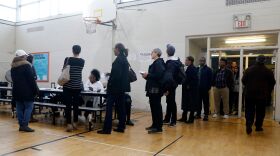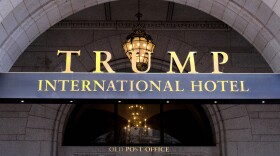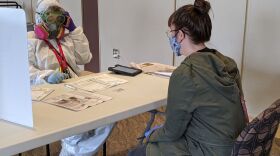
Brett Neely
Brett Neely is an editor with NPR's Washington Desk, where he works closely with NPR Member station reporters on political coverage and edits stories about election security and voting rights.
Before coming to NPR in 2015, Neely was a reporter for Minnesota Public Radio based in Washington, where he covered Congress and the federal government for one of public radio's largest newsrooms. Between 2007 and 2009, he was based in Berlin, where he worked as a freelance reporter for multiple outlets. He got his start in journalism as a producer for the public radio show Marketplace.
Neely graduated from Occidental College in Los Angeles. He also has a master's degree in international relations from the University of Chicago. He is a fluent German speaker.
-
Why suffer bug bites when you can stay inside and READ? NPR staffers suggest a trio of non-fiction: "The Showman," "Invisible Rulers," and "the Threshold of Dissent."
-
Anyone who's online and shares information plays some role in shaping whether falsehoods gain traction. Here's some advice on how to share responsibly.
-
Pro-Trump Republicans in Georgia are circulating a touchscreen voting machine conspiracy theory. The conspiracy theory comes from concerns from Democrats.
-
After an election that saw record voter turnout, some GOP state lawmakers are proposing a wave of new voting laws that would effectively make it more difficult to vote in future elections.
-
President-elect Joe Biden called on Americans to unite this holiday season amid the pandemic. Minutes earlier, President Trump repeated baseless claims about the election being "rigged."
-
No one in the immediate ranking of officials who might need to succeed the president has tested positive.
-
Elections are run by state and local governments, and it's unclear what legal means the president would have to withhold funds from the states.
-
The District of Columbia and Maryland say Trump is violating the emoluments clauses of the Constitution that prohibit the president from receiving gifts or favors from foreign and state governments.
-
Approximately 400,000 people voted in person in Wisconsin after courts and GOP lawmakers rebuffed proposals to postpone the election or conduct it by mail.
-
While limited in-person voting will take place on April 7, absentee ballots won't be due to election offices until April 13.









